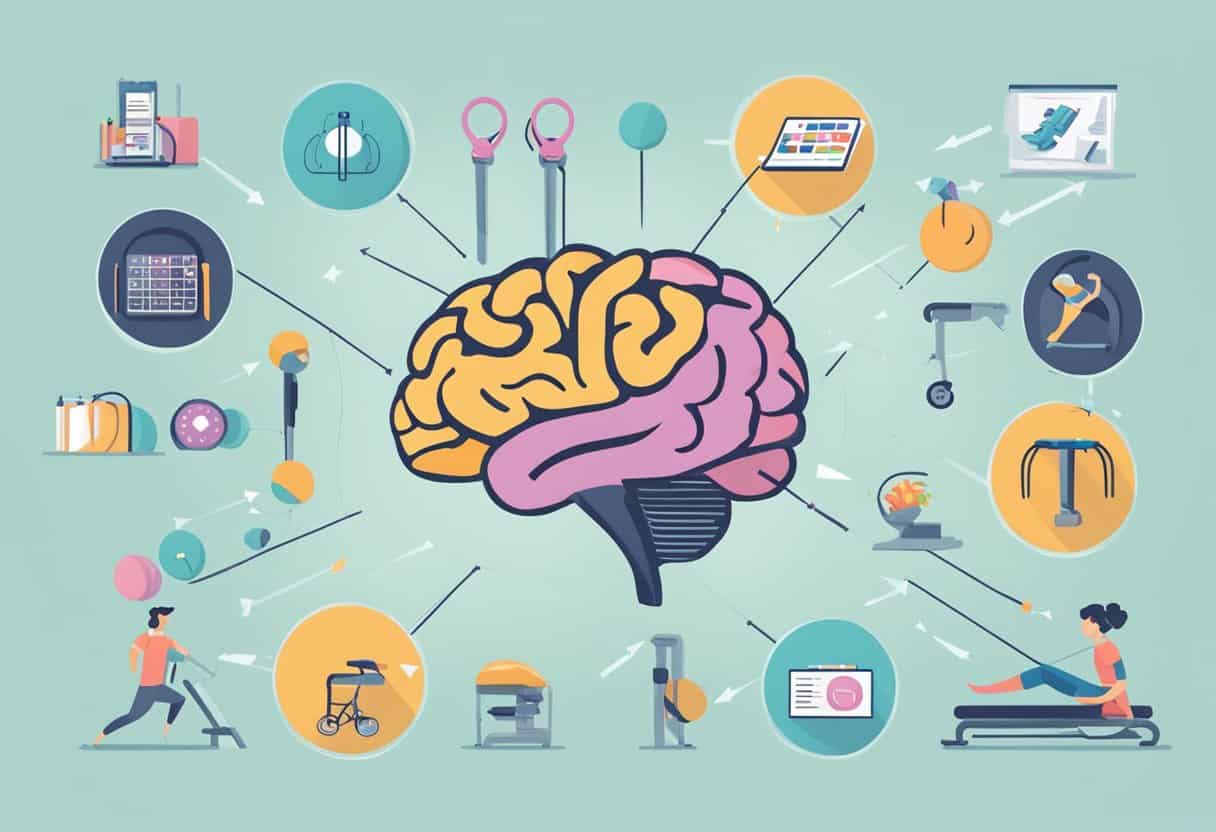Physical exercise is commonly known for its positive effects on the body but also significantly impacts cognitive function. Physical leisure activities improve your muscles and cardiovascular health and enhance your brainpower. Studies indicate that there are many cognitive benefits of exercise which enhance various cognitive processes, such as memory, attention, and executive functions.
Neurological Enhancements
Regular physical exercise positively impacts brain function and overall cognitive skills because exercise improves blood flow to the body, including the brain, promoting the growth of new neurons. This process is called neurogenesis. Additionally, exercise can provide the necessary nutrients for the development and survival of brain cells. The cognitive benefits of exercise are not age-specific and can be enjoyed by people of all ages. Prioritizing regular physical activity can be an intelligent way to maintain and improve both brain function and physical health.

Exercise is more than just a physical booster; it’s a catalyst for enhancing brain function and plasticity. You can expect a range of cognitive benefits through consistent physical activity as it is associated with a lower risk of cognitive decline. In addition, the brain’s ability to reorganize itself, called neuroplasticity, forms new neural connections. Exercise facilitates these benefits, and significant findings include:
- Memory: Aerobic exercises can lead to improved memory functioning.
- Attention: Your focus and attention become more acute with regular physical activity.
- Reduced Risk: Individuals who exercise demonstrate a lowered risk of developing cognitive impairments.
- Protective Effects: Exercise acts as a protective measure against the onset of neurodegenerative diseases.
- New Neurons: Stimulating the production of neurogenesis, the birth of new neurons.
- Synaptic Plasticity: Enhancing the strength of synapses improves the brain’s ability to incorporate and store information.
Psychological Improvements
Regular exercise also enhances your psychological well being through mechanisms like stress relief, mood improvement, and self esteem enhancement.
When you engage in physical leisure activity, your body’s stress hormones, such as cortisol, are reduced, and the production of endorphins and mood elevators is increased. Exercise nurtures a sense of achievement as you meet your fitness goals. This process directly boosts your self esteem and leads to the following:
- A more relaxed and optimistic outlook on life
- Improved sleep quality
- Easing symptoms of depression and anxiety
- Enhanced cognitive function, leading to clearer thinking
- Increase your confidence levels
- Foster a stronger appreciation of your body’s capabilities and appearance

Memory and Learning
Engaging in regular exercise can lead to significant improvements in your memory and learning capabilities.
Exercise can enhance your brain’s ability to consolidate memory, forming a stable memory from a lived experience. Studies show that aerobic activities like running and cycling can boost the production of neurochemicals that support the growth of new brain cells, a process known as neurogenesis.
Regular physical exercise can improve your ability to learn and focus as exercise increases the amount of brain derived neurotrophic factor (BDNF). BDFN helps your brain adapt and change based on experience. Engaging in physical leisure activities that require coordination and complex motor skills also stimulates neuronal activity and promotes the ability to ignore distractions. Below, you will find information on how different types of exercise can impact your attention span and focus.
- Aerobic exercise leads to long-term improvements in sustained attention.
- Interval training is efficient for enhancing brain function and learning ability.
- Yoga and Tai Chi can improve control over selective attention.
- Strength training may have benefits for immediate focus improvement.
- Spending time in nature improves creativity and mental clarity.
- Engaging in exercises that elevate your heart rate, like running, swimming, or cycling, is best to enhance your cognitive function.

Physical Health and Cognitive Function
Regular physical activity enhances cardiovascular health, and energy levels are directly linked to cognitive function, thus improving brain function.
Cardiovascular fitness, achieved through exercise such as running or cycling, directly supports brain health, higher levels of physical fitness correlate with improved brain structure, including increased memory and executive function.
Regular exercise boosts your mitochondria, the power producers in your cells, leading to enhanced energy availability. This boost in energy translates into better mental acuity and concentration. Improved energy levels make you better equipped to handle cognitive tasks, leading to a more productive cognitive state.
Final Thoughts
It is essential to recognize that exercise benefits brain health at all ages. Different types of leisure and physical activity can uniquely contribute to cognitive enhancement.
Frequently Asked Questions
In what ways does physical activity influence cognitive performance in seniors?
Physical activity helps maintain and improve cognitive performance in seniors by promoting neuroplasticity. This process aids in sustaining neuron connections and may even generate new neurons, which is crucial for memory and learning.
What mental health improvements can be attributed to regular physical activity?
Regular physical leisure activities can reduce anxiety and depression and improve mood, sleep patterns, and self-esteem, which is essential for overall mental health.
How does participating in aerobic exercise relate to cognitive health?
Participating in aerobic exercise is positively related to cognitive health as blood flow to the brain increases, delivering necessary nutrients and oxygen to brain tissue and supporting overall brain health, which can assist with executive functions like multitasking, planning, and attention.







